September 14-15thMaster Centar, Novi Sad
Partners on previous edition



Partners on previous edition







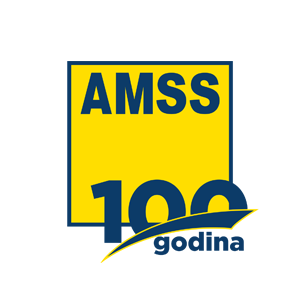

























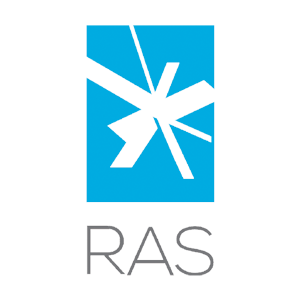






















The EV days is an exhibition and a conference dedicated to electric mobility that represents a new global technological solution for transportation of people and goods.
Organizers of this prestigious event are Ninamedia and the Faculty of Technical Sciences, University of Novi Sad, in cooperation with RTS as the media partner.
The event is envisaged as an interactive experience that will gather all the leading companies from the automotive industry, component manufacturers, automotive parts makers and software designers, companies that make chargers and auxiliary infrastructure for electric and hybrid vehicles. The panels will feature some ofthe most prominent names in the region’s automotive industry, top experts, as well as students.
The event will gather the representatives of government, local and regional institutions connected to the mentioned field, as well as representatives of companies that have experience or are planning to introduce solutions based on electric mobility into their business operations.
The EV days days will be organized in several segments that will fully cover all current events related to this topic, providing an opportunity for all the participants to present themselves in a direct way to the visitors at the event, as well as to the wider audience through communication platforms.
The EV days will organize an exhibition, and a conference that will be divided into several panel discussions, which will provide an opportunity for the visitors to familiarize themselves with the aspects that follow the journey of electric and hybrid vehicles. Speakers from the world's largest organizations regarding the latest technologies related to electric and hybrid vehicles will share their experience and knowledge in panel discussions and keynote lectures.
Interactive panel discussions will cover numerous questions and dilemmas presented by the visitors. The exhibition area will allow visitors to test electric vehicles, chargers and learn about EV components.
11:00 - 11:30 - OTVARANJE
Milan Đurić, Gradonačelnik Novog Sada
Dubravka Đedović, Ministarka rudarstva i energetike
Kristofer Hil, Ambasador SAD u Republici Srbiji
Host: Vlada Jelić

Moderator: Anica Telesković
11:30 - 12:45

Moderator: Vesna Lapčić
13:00 - 14:15

Moderator: dr Minja Bolesnikov
15:15 - 16:30
18:00h EV DAYS GALA party, Futoška 71 (Ninamedia)
10:30 - OTVARANJE
Jelena Begović, Ministarstvo nauke, tehnološkog razvoja i inovacija
Predstavnik OMR Grupa

Moderator: prof. dr Boris Dumnić
10:30 - 11:45

Moderator: Anđelko Trpković
12:00 - 13:15

Moderator: Mladen Alvirović
14:00 - 15:15
15:30h-16:00h Gosti iznenađenja
16:00h Zaključak konferencije i koktel
Whenever the global market experiences a shift in the direction (and especially in the energy market) it always comes with new challenges to be wary of. However, if approached properly it can also present oneself with an opportunity to further improve the position and gain momentum in the emerging market. In the past several years, the global energy market that has had clear price surging tendencies finds itself on a rollercoaster. The prices that have surged during the last “energy crisis” will probably never enter similar levels it had before, while it also remains a mystery if it will hit the same heights. Complex variables have entered the energy market realms, making any and all predictions difficult. In that regard, different economies found different levels of success with the new and emerging technologies, leaving systems facing challenges with integration, regulation and decentralization. To capitalize on the global momentum in the emerging markets, it is usually necessary to facilitate a large adoption of contemporary technologies such as renewable energy and “green” vehicles. Nevertheless, the issue of whether the system can support such large scale integration remains.
To facilitate a large scale adoption of contemporary technologies it is necessary to take a systematic approach both in terms of developing the technology as well as changing the perspective of all related stakeholders within the topic. Perhaps the most important facilitator for the future will be within the academy, where future generation of professionals are being prepared to face next level challenges. By the same token, specific activities are necessary in order to awaken the general public and increase their belief in the technology. On the other hand, as this can only be done by directly presenting the merits of the technology, the other key role will be designated to the policy and decision makers. By instigating the installment of beneficial enabling policies, the public domain will play a key role in fostering the technology development. However, this cannot be done bluntly, as there are several challenges the future power ecosystem will face. Considering the previous, only a comprehensive approach stemming from collaborative efforts of all prospective stakeholders will yield sufficient results in both rising the awareness and rising the technology ladder. For a general consensus to be made, a broad forum consisting of technology providers, policy makers, academia and others should be formed, with a clear goal in mind – Advancing the contemporary EV technology fostering simple mass integration for the maximum benefits in the future.
The technology has been rapidly developing both in term of technological advancements as well as in terms of stylistic presentation. This enabled the development of contemporary concepts with a goal to further highlight all benefits of individual technologies. Smart cities, a concept almost impossible to imagine without electrified form of transportation (public transportation, personal vehicles, micro-mobility) could perpetuate the adoption of new technologies. This can particularly be applied to conceptual solutions such as “green” university campuses and “green” smart city centres, where access is only permitted to electric vehicles. The concept of urban micro-mobility (e-bicycles, e-scooters and light electric vehicles), while technically ready for integration, still does not enjoy full support from the public. A positive contribution to the concept of urban micro-mobility was made by new business models, especially companies which have developed local logistical networks, where the use of electric vehicles (with adequate solutions for route optimization) could make a significant impact on the reduction of operating costs. The result of these solutions would greatly improve the quality of life in urban environments in terms of air pollution, noise pollution, and easier mobility and in many other segments. Additionally, these solutions encourage changes in the design of urban centres and infrastructure, enabling solutions that are socially and environmentally sensible. Integration of a highly capable communicational infrastructure and other “different” smart technologies will further capitalize on the novel and sustainable concept, paving the way to smart, efficient and futuristic city concepts.
The modern technologies, especially within the transportation domain (bot personal and commercial) are always plagued by stark requirements of fuel consumption. Both long and short distance transport has many different concepts and notions, but almost none of those come without the “price”. And the price can be steep both financially, as well as in terms of environment. Modern technological advancement in current technologies and also within emerging ones look to reduce this price in term of environmental influence, usually come about with increased financial part. However, the issue is not only reducing the carbon footprint or increasing the efficiency of transportation system, rather it should be about doing it in a manner that does not only shift the issue to the next industry. The mass integration of EVs, though it may seem as a wish that came true, may implicate a “fate worse than hell” for the power industry, when most of the conventional fuels is replaced with electricity. To achieve a sustainable consensus, it is necessary to observe both sides of the same coin, trying to offer market competitive vehicles that offer users with indefinite comfort (regarding the experience and the range), whilst preserving the power system functionality and flexibility. The solutions to these issue may come from technical background (EV dual utilization, storage, RES integration, etc.), but may as well stem from utilization standpoint (fleet management, smart sharing technologies, etc.). In that regard, it is important to define future goals in such manner that all aspects are considered equally, which can only be achieved by a broad consensus coming from a collaborative efforts of all potential stakeholders.
The development of smart solutions that will enable autonomous and safe use of electric and hybrid vehicles already represents an important industry in itself, the evolution of which is almost incomprehensible. In addition to classic software and hardware solutions which aim to increase the essential comfort of electric vehicle users, the use of advanced control techniques has enabled the development of other fields with such growth that they could be considered as separate business sector. This primarily refers to the vehicle information network (VIN), i.e. all those devices, tools and software solutions which enable the vehicle to “sense” its immediate environment, and to interact with the former to a certain degree (within the vehicle itself or with other traffic participants). With the interaction of certain systems within the vehicle itself, the issues of energy management, performance and lifetime of specific electric vehicle elements (namely the battery as the most sensitive part) have been resolved. In addition, timely information and adequate management directives can be ensured with a well-designed and a “smart” human machine interface (HMI). With a higher level of interaction between the vehicle and the environment, certain issues such as limited range, can be reduced to an acceptable level. However, this is not the only benefit to such technologies, as the development of smart solutions and the VIN will lead to a much safer environment for all. Ultimately, this will pave the way to fully autonomous transportation systems on a small and large scale. Furthermore, the use of route optimization and appropriate software solutions, will likely result in the reduction of operating expenses of companies using them. A lot of the focus was set on developing the systems and solutions for autonomous driving, representing the peak of the (electric) vehicle information network use. Certainly, software solutions in this field must be continuously improved in order to satisfy the highest standards of reliability, while they simultaneously rise several other important questions. The issue of autonomous driving cannot be resolved without an in-depth discussion about the safety of information systems (cyber security), especially from the aspect of introducing artificial intelligence. A major concern related to the inclusion of artificial intelligence in the process of decision-making is also the question on programming a critical and ethical decision-making process, while solving for the formal and legal accountability conundrum.
When it comes to the electric vehicles of today, one of the basic questions each potential buyer asks is - does the electric vehicle offer enough benefits in relation to their current needs? The perception of electric vehicles in the today’s society, largely based on a prejudice as consequence of rapid shifts in the technology, often factors in the issue of applicability of EV technology. However, there is an inherent reality related to the EV technology, as it comes with a vastly superior technology and the resources to make the user experience substantially richer (a digital hedonism environment of sorts). Becoming ever so more common, the field of electric mobility can offer otherworldly (sometimes even psychedelic) experiences. It is very important that potential users are familiar with all fields where electric vehicles have been established as the “new normal”, and in that respect, with existing types of EVs, where they can be used and how they are maintained. The future of electric vehicles eco-systems seems bright, but in order to keep the technology on the right track it is necessary to reach out and educate users, raise awareness about how new technologies can change their lifestyle. It does however, help to have specific experiences that only EVs can truly offer.
Part of the exhibition segment of the conference will take place at the Master Centre, where the audience will have the opportunity to get a detailed introduction to electric and hybrid vehicles. The visitors will have the opportunity to get acquainted with the electric and hybrid vehicle chargers.
Sample chargers will be available for testing the connection, disconnection and unlocking of the charger, as well as the data they show.Also, the participants of the event will have the opportunity to see all the advantages and limitations of the AC and DC charger technologies.
The exhibition part will complete the whole event through practical experiences, so visitors will have a proper image of the electric vehicle life cycle.
EV DAYS will feature a testing zone where the audience will have the opportunity to get familiarized with the use of hybrid and electric vehicles.
The dynamic zone is designed to add to the topic of: Electric vehicles in practice.
The testing zone will be in the outside area of the Master Centre, which will be fully adjusted to the needs of the exhibitors as well as the visitors.
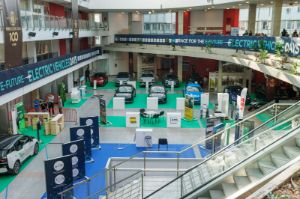

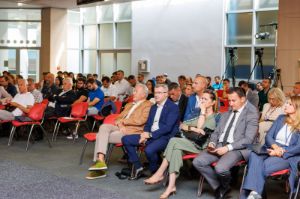
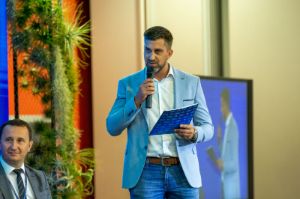
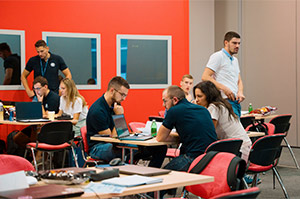
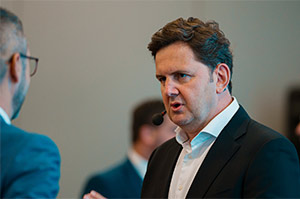
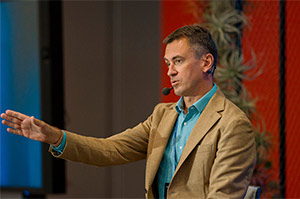

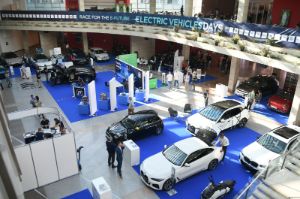
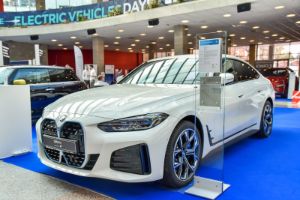
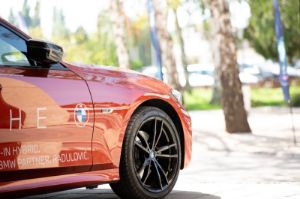

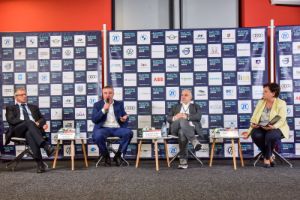
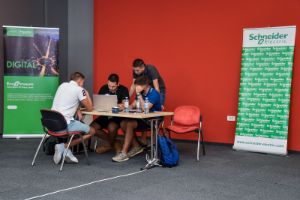
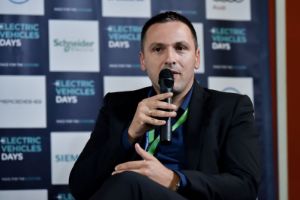
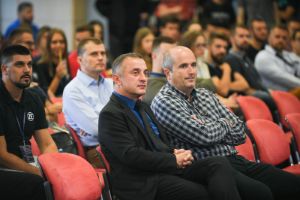
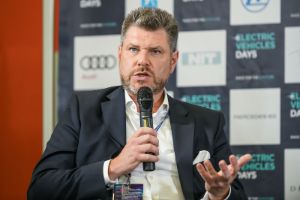
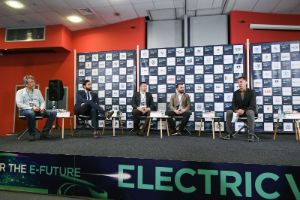
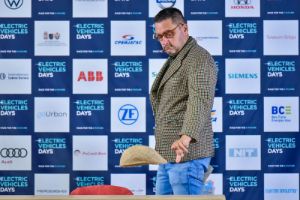
IEEE4CHALLENGE is a project consisting of 4 thematic challenges intended for students who will attempt to solve the problems that the automotive engineers face.
Through the challenges, the students will be introduced to the latest technological approaches and industrial problems of today. In addition to acquiring new skills and knowledge, the IEEE 4 CHALLENGE enables networking between students with similar interests who will try to solve different issues through creativity, fun and teamwork.
The competition will take place on the first day of the EV days exhibition and conference.Over a period of several hours, the teams will attempt to solve the challenges set by leading companies in the automotive industry. Teams of students will have help from professional engineers. The winners of each of the challenges will be announced on the second day, at the conference closing ceremony. For any additional info please write to us: challenge@ev-days.rs
